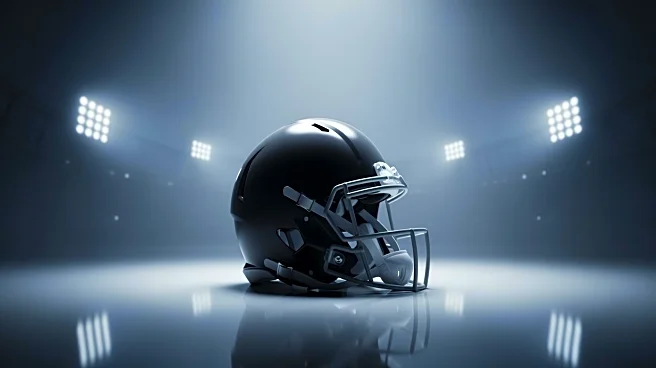What's Happening?
Dallas Cowboys defensive end Marshawn Kneeland has died at the age of 24 from a self-inflicted gunshot wound, as confirmed by the Texas Department of Public Safety. His death occurred shortly after a brief
police pursuit that ended with his vehicle found crashed and empty. Kneeland had recently scored his first NFL touchdown, which was celebrated by teammates and fans. The tragedy has prompted an outpouring of grief and reflection across the NFL community. Jennifer Slay, wife of Pittsburgh Steelers cornerback Darius Slay, shared a poignant message on social media urging people to 'check on your PPL,' highlighting the importance of mental health awareness. The Cowboys organization expressed their condolences, and Kneeland's agent confirmed the heartbreaking news, describing Kneeland as a beloved teammate and friend.
Why It's Important?
The sudden death of Marshawn Kneeland underscores the critical issue of mental health in professional sports. His passing has sparked conversations about the pressures athletes face and the need for better mental health support systems within sports organizations. The NFL community's response, including messages from players and family members, highlights the growing recognition of mental health challenges and the importance of addressing them openly. Kneeland's story, marked by personal loss and professional achievement, resonates with many, emphasizing the need for empathy and support for athletes dealing with mental health struggles.
What's Next?
The NFL and sports organizations may face increased pressure to implement more comprehensive mental health programs and support systems for athletes. Stakeholders, including team management, players, and mental health professionals, are likely to engage in discussions on how to better support athletes' mental well-being. The tragedy may also lead to policy changes or initiatives aimed at promoting mental health awareness and providing resources for athletes in need.
Beyond the Headlines
Kneeland's death brings attention to the broader societal issue of mental health stigma and the challenges individuals face in seeking help. The incident may encourage more open dialogue about mental health, not only in sports but across various sectors. It also raises ethical considerations regarding the responsibilities of sports organizations to prioritize the mental health of their players and the potential long-term impact of such tragedies on the community.









